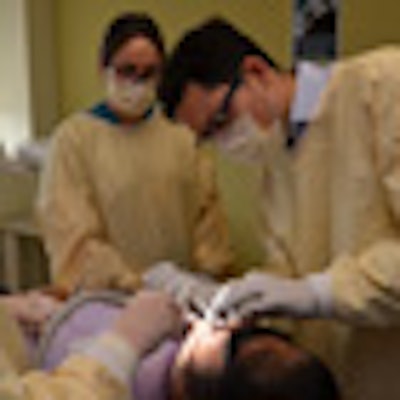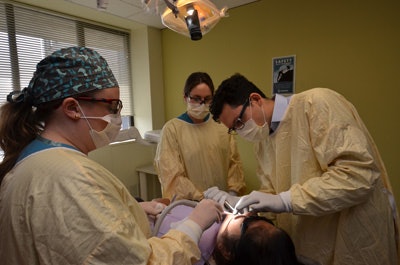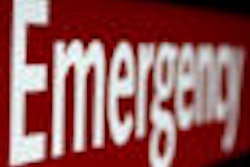
A Seattle clinic has stepped in to fill the gap after Washington cut adult dental services from its Medicaid program. The Swedish Community Specialty Clinic (SCSC) is taking the pressure off hospital emergency rooms (ERs) by performing extractions before they become painful abscesses.
In January 2011, the state's lawmakers eliminated nonemergency dental benefits for nearly 450,000 adults during a round of budget cuts. Since then, hospital ERs and dental clinics across the state have reported a growing number of patients with serious dental problems seeking treatment.
During a recent 18-month period, there were 54,000 dental-related visits to Washington ERs, costing more than $36 million, with $7.6 million in King County alone, according to the Washington Dental Service Foundation. Dental problems are a leading reason why the uninsured and Medicaid patients visit ERs in Washington, according to the Washington State Hospital Association.
Weakened safety net
Into this breach has stepped the SCSC, which primarily performs tooth extractions but also does preprosthetic surgery, tori removal, biopsies, sinus exposure repairs, and root tip retrievals for adults.
Since opening in September 2011, the clinic has provided more than $650,000 worth of dental care and removed more than 2,000 infected teeth, said Dental Director Noah Letwin, DDS, PhD.
 Since opening in September 2011, the Swedish Community Specialty Clinic has provided more than $650,000 worth of dental care and removed more than 2,000 infected teeth. Image courtesy of SCSC.
Since opening in September 2011, the Swedish Community Specialty Clinic has provided more than $650,000 worth of dental care and removed more than 2,000 infected teeth. Image courtesy of SCSC.
The clinic treated 738 patients between January and November of 2012, but the numbers are expected to increase dramatically this year, according to Dr. Letwin.
"We expect these numbers to more than double in the next 12 months," he told DrBicuspid.com. "It's always very crowded; we see a ton of people."
The clinic operates three and a half days a week, but Dr. Letwin hopes it will expand to five days in July.
"Eliminating nonemergency care has significantly weakened the safety net our community health centers are designed to deliver by forcing them to provide more advanced, complex, and expensive care," Dr. Letwin said.
In Washington, children covered by Medicaid (younger than age 21) are still eligible for nonemergency dental care, as are pregnant women, the disabled, and long-term care patients. But adults on Medicaid can only get x-rays and extractions of acutely symptomatic teeth.
"This results in patients having extractions done one painful tooth at a time, and they're often walking around with a mouthful of infected teeth, any of which could lead to an ER visit," Dr. Letwin explained.
Increasing need
The Swedish Medical Center, which oversees the dental clinic, has reported seeing a steady stream of patients coming into the ER with dental problems, most of which are not true emergencies.
And community clinics are providing much more emergency care, said Sarah Vander Beek, DMD, who treats low-income patients at Neighborcare Health's Rainier Beach Medical and Dental Clinic in South Seattle. Patients are coming in with dental problems that more advanced and complex, she noted.
The cuts have hit many, especially the elderly poor, according to Dianne Baum, dental program administrator for the Washington State Health Care Authority, which administers the Medicaid program.
Community clinics can refer patients to SCSC for extractions that are beyond their scope of practice, Dr. Letwin said.
“This [Medicaid cuts] results in patients having extractions done one painful tooth at a time.”
SCSC is mostly staffed by dental residents of the Swedish Medical Center; it also has two staff dentists and 30 volunteer dentists, including periodontists and oral surgeons.
Many of the patients have third molars that are erupting or impacting second molars, Dr. Letwin said.
"We see patients with a mouthful of rot where all the teeth need to come out, but the community health centers (CHCs) can only take out a single tooth that's hurting the patient," he said.
The CHCs are not able to do multiple extractions or smooth down the bones so dentures can fit properly, so they send these patients to the Swedish clinic. However, CHCs do provide palliative treatment, such as antibiotics and pain medication.
"They send us patients with severely carious teeth so we can remove them before they become an emergency," Dr. Letwin said. "It would be much nicer to solve this problem on the prevention side, but there's always a subset of the population where that just doesn't work."
Patients run the gamut from the homeless to working people, he said. The no-show rate is about 5%, mostly because the local Project Access program ensures that patients show up for appointments.
"We're certainly taking the pressure off the CHCs, because they're not being asked to do procedures that they either don't have the time or capacity to do," Dr. Letwin said.



















